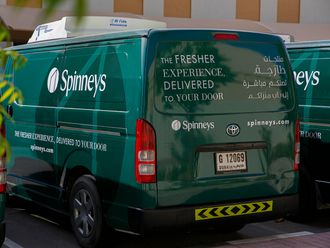Saudi Arabia’s celebration of its 88th national day comes at a time when the kingdom is achieving remarkable progress across all economic and social fields, which will have many positives for diversification in a post-oil era. These will also passively affect the living standards of Saudi citizens, especially as structural reforms have come about by implementing strategic projects, such as the $500 billion (Dh1.83 trillion) Neom project, Al Qidiya project and the Waad Al Shamaal City.
What is especially arresting is the noticeable local and international response to contribute to the implementation of these projects and backed by the public support. The kingdom’s approach has got along well with Saudis’ aspirations to bring about a more diversified economy and sustainable development that will ensure a decent life for future generations.
Given the progress achieved in a short period, supported by rising oil prices, the International Monetary Fund (IMF) has changed its positive outlook thrice for growth of the Saudi economy in 2018 — from 1.7 per cent to 1.9 per cent and then to 2 per cent, which reflects the rapid progress of the development programmes. Meanwhile, the recently released Capital Economics’ report expected the economy to grow swiftly this year to 3.5 per cent thanks to financial policies and support from the oil sector.
In addition, the trade balance is expected to rise by 160 per cent to reach $16.3 billion, which is among the many positive indicators looming on the Saudi horizon. The financial policies and reforms also contributed to an entry into the emerging markets’ MCSI index in June, which helped attract more investments and put the Saudi bourse as one among the G20 countries that set the course of the global economy.
The Saudi government has made huge allocations on infrastructure projects, one of the positive trends that marked the progress achieved this year. These include a new $8 billion electricity project along with roads, water, transportation and construction works. They also include a package of facilities to further attract tourists. This comes as part of the kingdom’s Vision 2030, which would reduce dependence on oil by 50 per cent and enhance the attractiveness of the investment space.
Meanwhile, the kingdom has achieved significant improvement in social development, where the quality of education, health and housing has been upgraded, in addition to allowing women to drive for the first time ever. These will help generate significant economic results.
It also allocated $35 billion to support the quality of life programme, which will develop the level of services provided, especially ones increasingly dependent on “smart” techniques. Since restructuring the private sector and increasing its developmental role is one of the prime pillars of Vision 2030, incentives amounting to $20 billion have been put in place to support the private sector, which will contribute to job creation.
Although it is difficult to identify the achievements made this year, the kingdom will mark this year’s National Day more proud, stable and confident about its future, despite the geopolitical conditions and distortion campaigns led by the axis of evil made up of Iran, Qatar and the Muslim Brotherhood, who are trying to derail the economic progress achieved by the UAE, Saudi Arabia, Bahrain and Egypt.
What is really heartening is that such distortion campaigns are being faced not by similar campaigns but by practical achievements on the ground. Last week, the Executive Committee of the UAE-Saudi Coordination Council held its first meeting in Jeddah to follow up on the implementation of more than 44 joint strategic projects as part of ‘The Strategy of Resolve’.
The UAE-Saudi alliance has become a safety valve to protect and defend these achievements and create a new balance of power in the region. Thus, the Saudi celebration of its national day is for the whole Gulf region and Arabs, and especially for its strategic ally, the UAE.












